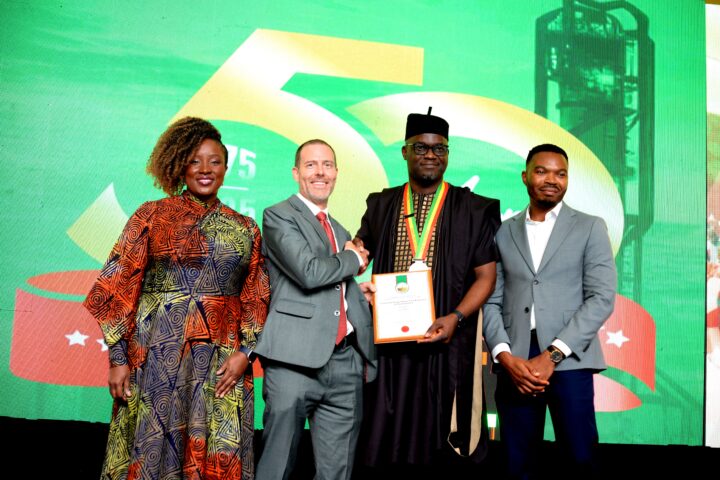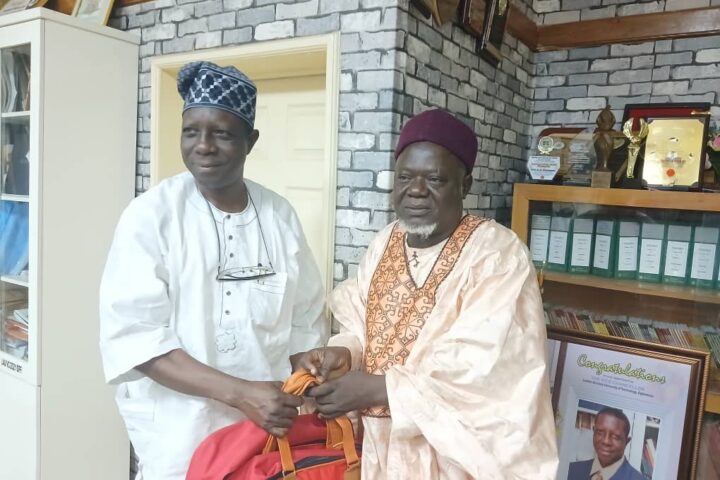The National Examinations Councils (NECO) has released the 2021 Senior School Certificate Examination (SSCE) external candidates results.
The results were released in Minna on Thursday, by the Registrar and Chief Executive of NECO, Prof. Dantani Ibrahim Wushishi.
He said the number of candidates that registered for the examination at 47, 916.
“The number of candidates that sat for English Language was 45,821 out of which 36,116, representing 78.82% made Credit and above.45,756 candidates sat for Mathematics, out of which 35,706, representing 78.04percent made credit and above.
“The number of candidates who got five (5) credits and above, including English Language and Mathematics is 29,342,
representing 62.59%.On the other hand, 37,991 candidates, representing 81.04%, got five (5) Credits and above, irrespective of English Language and Mathematics.
“The number of candidates booked for various forms of malpractice in 2021 is 4,454, as against 6,465 in 2020, which shows a significant decline in the number of malpractice cases.”
Prof. Dantani said candidates can access their results on the NECO website www.neco.gov.ng, using their examination registration numbers.
He said the council has embarked on various programmes to reposition the examination body to better performance.
He commended President Muhammadu Buhari and the two ministers of education for their massive support.
“I thank the President and Commander-in-Chief of the Federal Republic of Nigeria for his support and assistance towards the execution of the Council’s mandate.
“My sincere appreciation also goes to the Honourable Minister of Education, Mallam Adamu Adamu and the Minister of State for Education, Honourable Chukwuemeka Nwajiuba for their support and guidance. The same goes to the Chairman and members of the Governing Board under the leadership of Dr.Abubakar Siddique Mohammed for their untiring support and guidance.
“I would also like to appreciate Members of the National Assembly who have continued to support the Council, through relevant oversighting committees,” he said.
News
Why National Assembly Should Pass Food Safety & Quality Bill-NESG
The Nigerian Economic Summit Group( NESG) has advocated the need for speedy passage of the National Food Safety and Quality Bill before the National Assembly.
Mr. Laoye Jaiyeola, Chief Executive Officer of NESG, who gave the suggestion in Abuja at the Experts/ Stakeholders Review and Harmonisation Workshop for the Food Safety and Quality Bill(2019),lamented that some of the Nigeria’s agricultural produce have been rejected in various countries of the world, owing to the fact that these produce failed to meet international quality standard.
He explained that it was necessary for the lawmakers to pass the bill into law to ensure standardisation of produce.
According to him, the passage of the bill into law is of “national interest and interest of the citizenry” geared towards poverty reduction and wealth creation.
He disclosed that lack of enabling environment and too many institutions involved in food quality control was responsible for the rejections suffered by Nigerian exporters of agricultural produce.
He emphasized the need for Nigeria’s produce to meet international standard, adding that it would create a new lease of life for farmers as well as create employment for many Nigerians.
In her speech, Mrs. Gloria Ekpo, Facilitator NESG Agriculture and Food Security Policy Commission, said producing safe food is essential to socio-economic development of the country.
Ekpo said food safety is key to achieving Sustainable Development Goals which include ending hunger, improving food nutrition and eradicating malnutrition, promoting good health and well-being while ensuring health production and consumption.
She urged stakeholders to dialogue and make relevant submissions for its easy passage of the bill by the National Assembly and assent of Mr. President.
She further called on the government institutions saddled with food regulatory functions to monitor producers of food system to promote food safe country.
She also canvassed for collaboration and coordination among the three tiers of government for the enforcement of food quality and safety in the country.



















